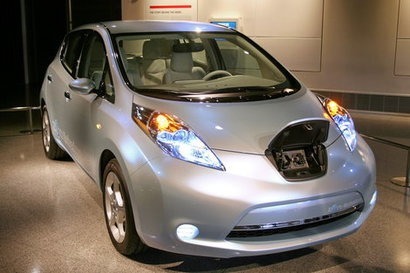
The EEA briefing 'Electric vehicles and the energy sector — impacts on Europe's future emissions' looks at the impact of different scenarios that take into account the increased use of electric cars and their effect on the European Union's (EU) energy system, and on emissions of greenhouse gases and selected air pollutants.
However, widespread use of such vehicles would pose challenges for Europe’s power grid in meeting increased electricity demand, the document warns.
Several scenarios were explored, including one model where electric cars have an 80 percent share of the EU's total car fleet in 2050. Additional electricity generation will be required in the EU to meet the higher energy demand. The need for extra power will be higher if other sectors like industry or households do not follow through on planned energy efficiency improvements. The use of renewable energy in 2050 will also have an effect on the level of emissions from the power-generating sector.
“Electric vehicles powered by renewable energy sources can play a bridging role in the EU’s plans to move towards a greener, more sustainable transport system, and in meeting its goal to reduce greenhouse gas emissions by 80‒95 percent by 2050” said Hans Bruyninckx, EEA Executive Director. “However, larger numbers will not be enough for the shift to a low-carbon economy.”
Mr Bruyninckx added that other problems such as growing demand for transport and congestion remain and need to be addressed as well.
Overall, the resulting carbon dioxide (CO2) emission reductions in the road transport sector would outweigh the higher emissions caused by the continued use of fossil fuels in the power-generating sector. In the EU, a net reduction of 255 million tonnes of CO2 could be delivered in 2050. This amount is equivalent to around 10 percent of the total emissions estimated for that year. However in countries with a high share of fossil power plants, environmental benefits would be lower. This would also lower the benefits of using electric vehicles in these countries.
An 80 percent share of electric vehicles would also significantly reduce overall emissions of certain air pollutants like nitrogen oxides (NOx) and particulate matter (PM). For other pollutants such as sulphur dioxide (SO2), emissions could increase due to the continued use of coal in the electricity generation sector.
A larger number of electric cars on the road may pose future challenges for Europe’s power production capacities and put stress on existing power grids. Under the 80 percent scenario, the share of Europe’s total electricity consumption from electric vehicles would increase from around 0.03 percent in 2014, to 9.5 percent by 2050. A more extensive infrastructure providing more public charging points would be key as well as increased power capacity able to handle a larger European car fleet. The assessment stresses that closer coordination between the road transport and energy sectors on policy making and investments will be crucial.
Today's briefing is complemented by the publication of a new EEA guide on electric vehicles in Europe, which provides a non-technical summary of the latest information on electric cars in Europe, including those with hybrid technologies. The guide specifically focuses on the electric passenger cars currently on the market, and describes how they work and the challenges and incentives in place they face in achieving their broader use. Sales and use of electric vehicles are increasing, but they currently only make up 1.2% of total passenger car sales in the EU. Current estimates also show that electric cars only account for 0.15% of Europe's total car fleet.
For additional information:

